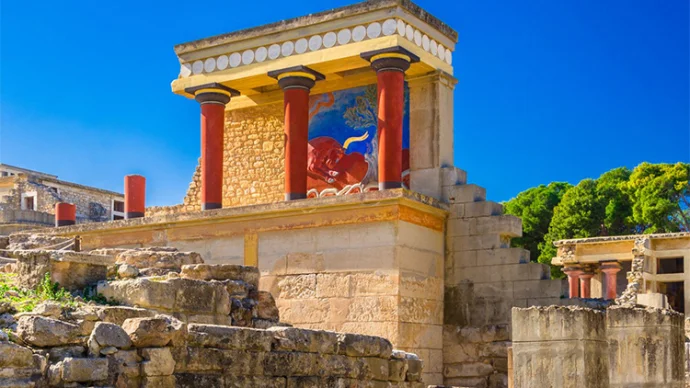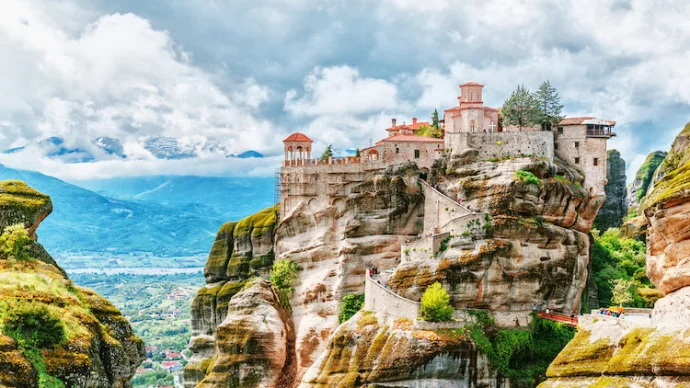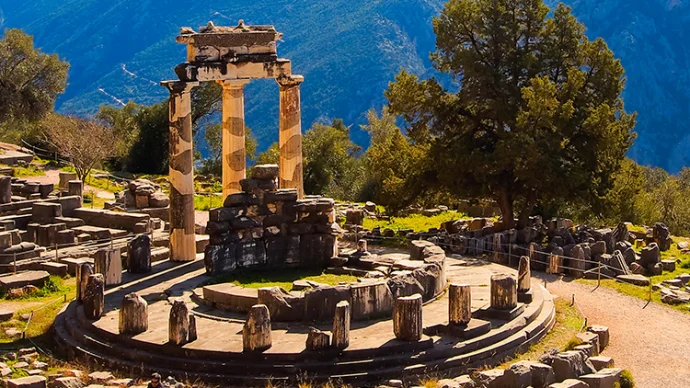
About Gortyna
Appearing in Homeric poems, Gortyna or ‘Gortyn’ on the Greek island of Crete was an ancient settlement originally founded in approximately 3000 BC, during the Neolithic era. However, it was during the Roman era from around the 1st to the 5th centuries AD that Gortyna flourished, boasting a population of up to 100,000 people.
Gortnya history
During the Roman period, Gortyna was the capital city of Crete and as such, a number of important temples and buildings were built here. Gortyna stood on a plain watered by the river Lethaeus, and at a distance of 90 stadia from the Libyan Sea with its two harbours, Lebena and Metallum, and is mentioned by numerous ancient writers including Pliny the Elder.
Gortyna’s former prosperity is evident throughout this site, especially in the inscription of its Gortyn Law Code on the Odeon building, dating back to the 6th century BC and which is the longest of its kind. This important city was next to Knossos in importance and splendour; these two great towns leagued together to reduce all of Crete to submit to them.
Gortyna was also an important Christian site and the ruin of the 7th century Basilica of St Titus marks it as such. Unfortunately destroyed by the Saracens in 824 AD, Gortyna is now an archaeological site.
Gortnya today
Today part of the modern town of Gortyn, Gortnya is a major archaeological site which has been excavated since the 1880s. The remains of the significant Roman settlement can still be seen today, and the Temple of Pythian Apollo is a particularly notable ruin, whose outline is identifiable as is its stepped altar.
Getting to Gortnya
Located in south central Crete in the fertile Mesara plain, Gortnya is about 40 minutes drive south of Heraklion, on the same road to Phaistos and Matala. Gortyna is 1 kilometre past the village of Agii Deka, at the side of the main road.
Featured In

Crete's Ancient Sites
Explore Crete's ancient history at these remarkable sites.

Greece Historic Sites
Alongside its contributions to philosophy, astrology, and medicine, Greece's sites from classical antiquity have stood the test of time. Here are 10 must-see sites for any visiting history enthusiast.

Roman Ruins Greece
Along with Ancient Greek ruins, Greece's Roman ruins hold a unique insight into the country's changeable past. Enjoy our pick of 10 that you can't miss.




















